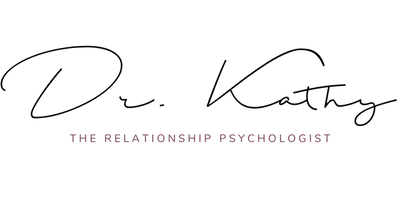10 Questions to Understand Why an Affair Happened
If you’re trying to understand why someone had an affair—or if you had an affair yourself and want to explore what led you to that decision—these ten questions can provide important insights. The goal isn’t just to look at the surface-level circumstances but to dig deeper into the underlying emotional patterns, past experiences, and coping mechanisms that contributed to the affair.
The Affair Bermuda Triangle
When I work with people struggling to understand infidelity, I often start with three foundational questions. Together, these form what I call the Affair Bermuda Triangle—the key emotional forces that create vulnerability to an affair.
- What was your mood like before the affair?
- What was your relationship like before the affair?
- Were there any recent traumas or triggers that caused you to struggle?
In my experience, most people who engage in affairs are dealing with a combination of these three factors: emotional distress (such as anxiety, depression, or loneliness), a strained relationship, and a major life stressor or trauma that intensifies their vulnerability. Affairs don’t happen in a vacuum—there’s always a deeper story behind them.
Uncovering the Deeper Roots
To truly understand the why behind an affair, we have to go even further back. Our childhood experiences shape our emotional world, our relationships, and how we cope with stress. These next questions help uncover the foundational patterns that may have played a role.
- Were there any large past traumas you experienced?
- What was your family like growing up? Describe what happened on a typical day after you came home from school.
- Who comforted you when you had a bad day as a child?
- What did you have to do or be to receive love as a child?
- What did you have to do or be to feel safe growing up?
- What did you have to do or be to feel valuable as a child?
- How did you cope when you did not receive love, comfort, or a sense of safety?
These questions aren’t about placing blame on the past but about recognizing patterns. Many people who struggle with emotional connection or healthy coping mechanisms in adulthood had to adapt in childhood—learning to seek approval, avoid conflict, suppress emotions, or self-soothe in unhealthy ways.
Why This Matters
The reason we explore these areas is that our early experiences create the blueprint for our relationships, coping mechanisms, and emotional regulation. Often, the same emotional wounds from childhood—feeling unseen, unworthy, or unsafe—are what get triggered in adulthood and lead people to seek comfort in an affair.
An affair is not just about attraction or opportunity—it often functions as an emotional painkiller, a way to escape or soothe unresolved pain. But real healing doesn’t come from running from that pain. It comes from understanding the purpose the affair served, identifying the pain it was masking, and finding healthier ways to cope.
If you or your partner are struggling to process an affair, I encourage you to explore these questions with honesty and self-compassion. Healing requires courage, but the deeper you go, the more you can break free from painful cycles and build something stronger.
Dr. K's Books on Infidelity Recovery
The Courage to Stay - How To Heal From an Affair & Save Your Marriage
The Courage to Stay Journal - An Affair Recovery Workbook for the Hurt Partner
More Affair Recovery Articles
What If My Partner Is Having An Affair With Co-Worker
How To Get Your Partner To Stop Talking To the Affair Partner
I Just Found Out My Partner Cheated, Now What?
Why Do People Have Affairs?
How Do I Tell Him That I Know He Cheated?
How To End an Affair - Sample Break Up Letter
All Healing from Infidelity Articles
See All Our Infidelity Articles
